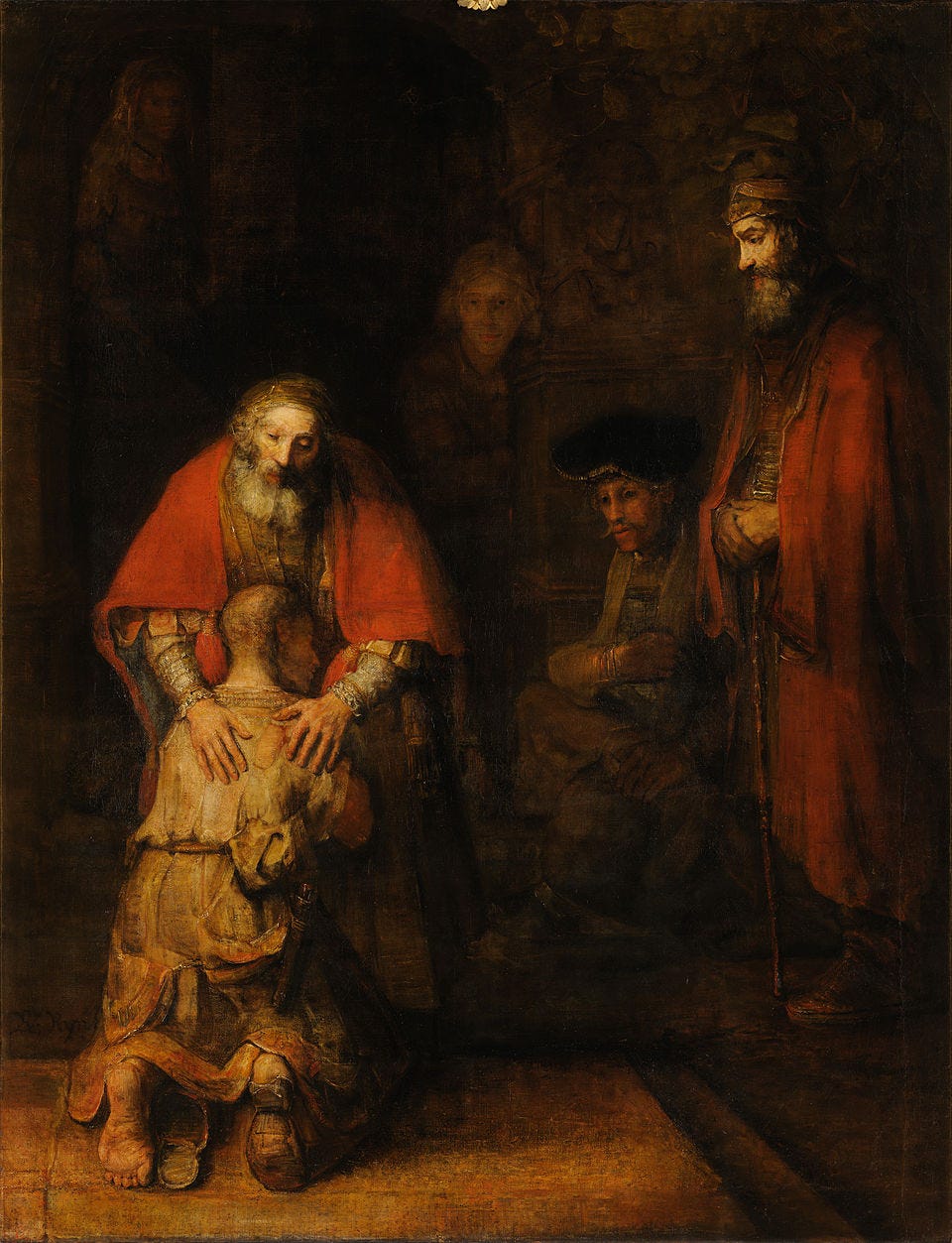
O my God, I am heartily sorry for having offended Thee, and I detest all my sins because of thy just punishments, but most of all because they offend Thee, my God, who art all good and deserving of all my love. I firmly resolve with the help of Thy grace to sin no more and to avoid the near occasion of sin. Amen.
I’m a sinner. That’s not just a theological statement, it’s personal. Pride and anger show up more often than I’d like to admit, but lust has always been my particular “thorn in the flesh.” For a long time, I thought I had won that battle. My standard was monogamy: if I’m a one-woman man and don’t betray her trust, then I’m doing okay. And honestly, by today’s cultural standards, that still seems like a solid place to stand.
But as I prepare to be received into the Church at Easter, I’m beginning to understand that God’s standards aren’t just higher, they’re holier. He doesn’t just want fidelity, He wants covenant. Not just restraint, but restoration. And now, with a girlfriend I deeply care for and a heart that’s trying to be made new, I find myself stepping into the Sacrament of Reconciliation, nervous, humbled, and in need of grace.
This is why I started praying the Act of Contrition.
I began praying it in late May of last year, unsure at the time how central it would become to my spiritual life. At first, it was simply a response to falling short, something I turned to when I felt I had sinned, especially in moments of temptation. It became a way to reach for God when I felt I had failed Him and myself.
There were weekends I struggled with guilt, sadness, and the feeling that I hadn’t loved well. I would often think of my girlfriend and ask myself, “What if this was my last day with her? Did I love her well enough?” In those moments, I’d turn to the prayer, sometimes haltingly, to ask for forgiveness and grace.
Over time, though, the prayer became something more, a mirror. I didn’t always want to say it. I began to notice a pattern: I’d avoid it when I felt like a “guilty little boy,” ashamed and exposed. I wasn’t just asking for forgiveness, I was wrestling with the vulnerability it demands. Sometimes, I just couldn’t bring myself to pray it.
At times, the weight of our decision feels almost unbearable, and the struggle to remain chaste seems overwhelming, making it feel more like a burden than a pursuit of a higher good. On those days, I find myself praying the Act of Contrition, feeling like an ashamed child, yet experiencing a sense of relief once the prayer is over.
But grace has a way of showing up anyway. One night, my girlfriend gently offered to pray it with me. That moment felt like a turning point, not just in my relationship with God, but with her too. The Act of Contrition isn’t only about guilt. It’s about trust. It’s about trying again. And I’m learning, slowly, how to pray it not just from shame, but from hope.
Since I had already received a conditional baptism the previous October, I was invited to go to confession as the Easter Vigil approached, as part of my preparation for the Rites of Initiation. That was when everything became real. My girlfriend and best friend had both warned me that confession could be challenging.
St. Ambrose once said that in the Church, there are two conversions: “there are water and tears, the water of Baptism and the tears of repentance” (CCC 1429). I had received the water. Now, I was going to learn what it meant to offer the tears.
My first confession went smoothly. I confessed my sins, stumbled through the Act of Contrition, received my penance, and was absolved. I left the confessional and sat in a pew, quietly praying through the assigned prayers. I felt a slight wave of relief wash over me, a little peace, maybe even a bit of gratitude. But I didn’t realize then that I would be back again the following week.
After Mass the next week, I approached the priest, hesitant and embarrassed. “Hi Father,” I said, “I know you’re probably busy, but you said I could ask after Mass if I needed to. Can you take my confession, please?”
I remembered a conversation I had with my girlfriend last year about why she didn’t receive communion. She told me that in order to do so, she would first need to go to confession, something she hadn’t done in a long time. She explained that she didn’t feel she could genuinely repent, knowing she would likely fall into the same patterns of sin again. She worried that returning to confession with the same sins would make a mockery of the sacrament. As I prepared for my own confession, I found myself understanding her struggle on a much deeper level.
I cried through my confession…
Her words echoed in my mind as I stepped into the confessional. I felt the same frustration. As I confessed the same sin, I couldn’t help but ask myself, Why am I here again? It wasn’t just guilt; it was the embarrassment of my ongoing failure. I cried through my confession, prayed the Act of Contrition, received my penance, and was absolved. As I left, the priest gently said, “Be patient with yourself.”
In that moment, I realized that confession isn’t about achieving perfection; it’s about returning with a sincere heart, willing to confront our failures and seek mercy, even when we know we’ll stumble again. Grace isn’t a transaction where we pay for perfection. It’s the act of coming back, time and time again, with a heart open to healing. It’s not about never sinning, but about learning to rely on mercy, trusting that each return to the sacrament is part of God’s plan for our restoration.





Jim, thank you for your honesty and candor in sharing this experience. And thank you for allowing yourself to be vulnerable and open in giving the Sacrament of Reconciliation a chance! (As well as your overall journey of faith!)
-- Dc. Tim